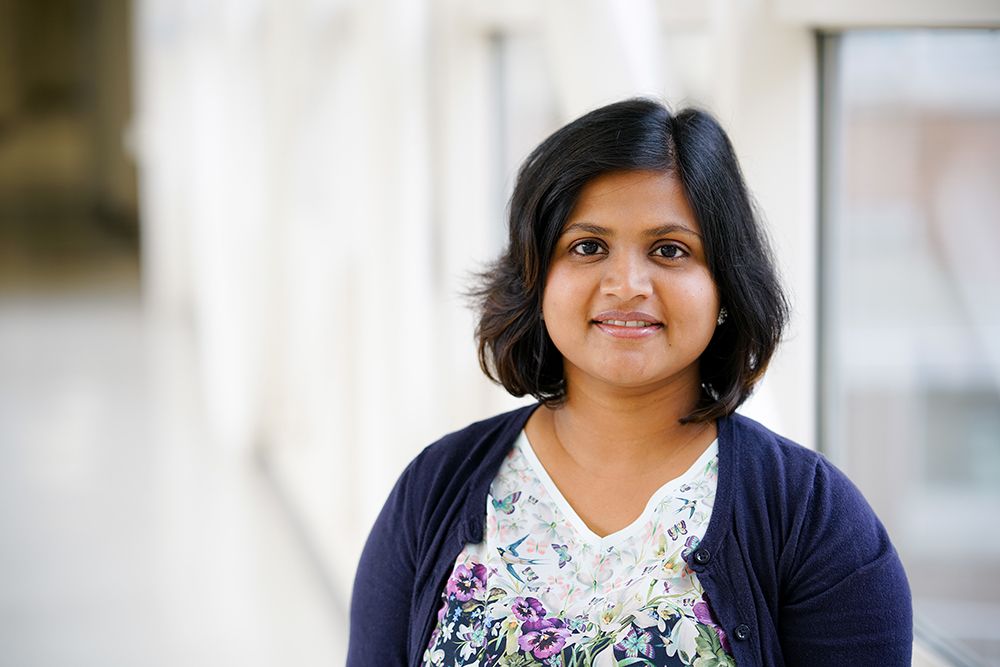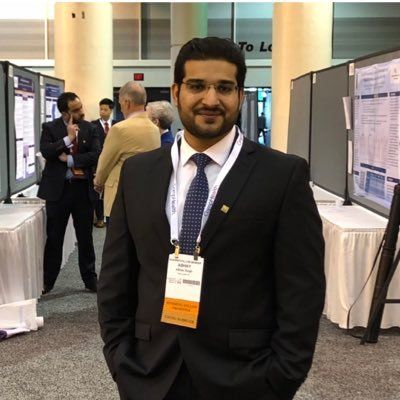Trend among patients with 3 cancer types likely driven by immune modulation, Roswell Park team proposes
- 15-year database lookback reveals decline in therapy-related MDS/AML
- Findings to be highlighted in discussion at ASCO 2020 virtual meeting
- Dr. Abhay Singh earned a Conquer Cancer Merit Award for role in study
BUFFALO, N.Y. — While breakthrough treatments have emerged for several cancers over the last two decades, driving striking improvements in survival and other clinical outcomes, too little is known about the risk of therapy-related hematologic cancers following targeted and immunotherapeutic approaches. In a study to be presented at the American Society of Clinical Oncology (ASCO) 2020 virtual meeting, a Roswell Park Comprehensive Cancer Center team reports that in many cases, these newer treatment approaches may reduce the risk of therapy-related myelodysplastic syndrome or acute myeloid leukemia (tMDS/AML) compared to chemotherapy-based treatment strategies.
Using 17 population-based Surveillance, Epidemiology and End Results (SEER) cancer registries, a team led by Swapna Thota, MD, and Abhay Singh, MBBS, MPH, evaluated the cases of 565,149 patients diagnosed between 2000 and 2015 with melanoma, non-small cell lung cancer (NSCLC), renal cell carcinoma (RCC) or multiple myeloma. Current standard treatment for all of these cancer types relies on drugs that stimulate the immune system — tyrosine kinase inhibitors (TKIs) and immune checkpoint inhibitors (ICIs), in the case of NSCLC, RCC and melanoma, and immunomodulatory imide drugs (IMiDs), in the case of multiple myeloma.
“We hypothesized that increased immune surveillance after treatment with these drugs could halt clonal evolution and reduce risk of therapy-related hematologic cancers — specifically, myelodysplastic syndrome or acute myeloid leukemia,” says Dr. Thota, Assistant Professor of Oncology in the Department of Medicine.
Co-authors on this work include Megan Herr, PhD, Assistant Professor of Oncology in the Department of Medicine.
In recognition of his contributions to this important research, Dr. Singh was awarded the Conquer Cancer – Syndax Pharmaceuticals Inc. Endowed Merit Award, which recognizes a fellow who submitted a high-scoring abstract focused on acute leukemias.
The study, Abstract 7516, will be displayed on board 289 in the Hematologic Malignancies—Leukemia, Myelodysplastic Syndromes, and Allotransplant virtual poster session and discussed in the poster discussion session "Battle of the Clones: Establishing the Leukemia Roadmap" from 8 a.m. to 11 a.m. Eastern Time today, May 29.
Roswell Park faculty leaders were invited to serve as discussants for two other sessions during the meeting:
- Grace Dy , MD, Chief of Thoracic Oncology, will be the discussant for “New Antibodies, New Targets: Are We Making Progress?” within the Lung Cancer—Non-Small Cell Metastatic oral abstract session. Registered, logged-in attendees can access the presentation here.
- Philip McCarthy, MD, Director of the Transplant & Cellular Therapy Center, will be the discussant for “New Kids on the Block (NKOTB): Novel Therapies in Multiple Myeloma” within the Hematologic Malignancies/Plasma Cell Dyscrasia oral abstract session. Registered, logged-in attendees can access the presentation here.
###
Roswell Park Comprehensive Cancer Center is a community united by the drive to eliminate cancer’s grip on humanity by unlocking its secrets through personalized approaches and unleashing the healing power of hope. Founded by Dr. Roswell Park in 1898, it is the only National Cancer Institute-designated comprehensive cancer center in Upstate New York. Learn more at www.roswellpark.org, or contact us at 1-800-ROSWELL (1-800-767-9355) or ASKRoswell@RoswellPark.org.
Annie Deck-Miller, Senior Media Relations Manager
716-845-8593; annie.deck-miller@roswellpark.org

